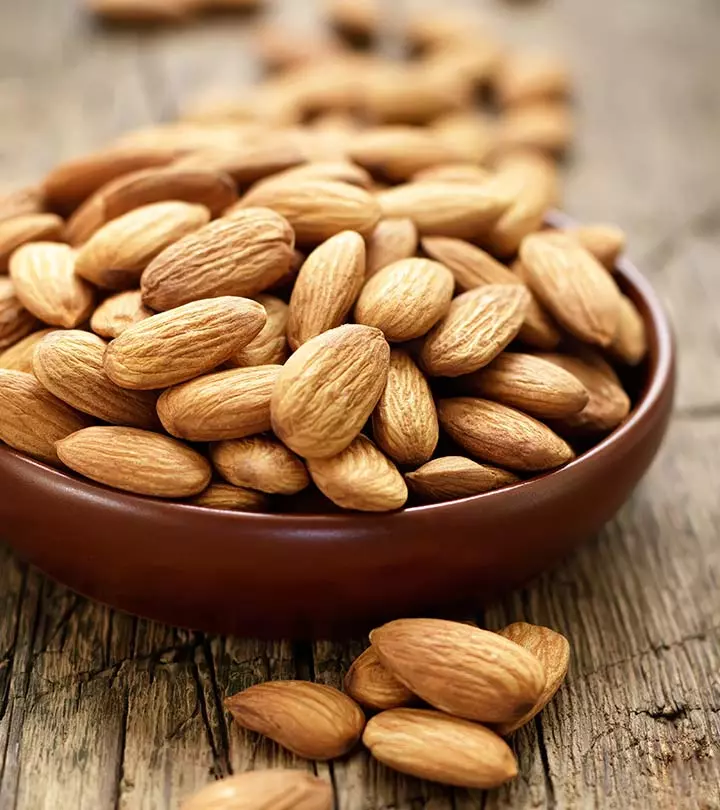7 Reasons Why You Might Be Gaining Your Weight Back
Discover hidden factors and habits that secretly influence your body’s changing size today!

Image: Shutterstock
Losing weight is an achievement worth celebrating. However, a lot of times, the pounds we shed with a lot of workout find their way back to haunt us. It’s a relatively common challenge that people face on their weight loss journey. In this article, we’ll explore some reasons why you might be experiencing weight regain. Understanding these factors can help you make informed choices to maintain your hard-earned progress and continue on your path to a healthier you. Read on!
In This Article
1. You May Be Exercising The Wrong Way
Surprisingly, there are instances when exercise can lead to weight gain (at least temporarily). This can happen when you start a new exercise routine or intensify your workouts. As you build muscle, which weighs more than fat, the body composition may change, and the scale might show a slight increase in weight.
Additionally, exercise can stimulate appetite, making you eat more to compensate for the extra calories burned during workouts. However, it’s important to note that this initial weight gain is often a sign of positive changes in body composition and improved fitness, rather than a negative outcome,
2. You Are Stuck With Yo-Yo Dieting
Being stuck in the cycle of yo-yo dieting can be frustrating and detrimental to your overall health. Yo-yo dieting involves losing weight through restrictive diets, only to regain it once the diet ends (1). This constant fluctuation in weight can wreak havoc on your metabolism, making it more challenging to maintain a healthy and consistent weight in the long term.
Moreover, yo-yo dieting can lead to emotional and psychological stress, as well as potential negative effects on your self-esteem (2). To break free from this cycle, it’s essential to focus on sustainable and balanced lifestyle changes that can support not only weight loss but also long-term health and wellness.
3. Lack Of Fiber Or Protein In Your Diet
Not eating sufficient fiber and protein in your diet can have various adverse effects on your overall health. Fiber is essential for digestive health, helping to prevent issues like constipation and promoting a feeling of fullness that can aid in weight management (3).
On the other hand, protein is crucial for muscle development and repair (4). It also contributes to feelings of satiety, preventing overeating and supporting weight control. When you’re not getting enough of these vital nutrients, you may experience digestive discomfort, low energy levels, and difficulties in maintaining a balanced diet.
4. You Are Too Social
Surprisingly, socializing can sometimes lead to weight gain for various reasons. Social gatherings often revolve around food and drinks, which can lead to excessive calorie consumption, especially if unhealthy options are readily available. Additionally, when you’re engaged in conversations or busy enjoying the company of others, you may not pay as much attention to portion sizes or your body’s hunger cues, potentially leading to overeating.
5. You Shop For Food Without Thinking What You Need
When you wander through the aisles without a plan, you’re more likely to impulsively purchase high-calorie, processed food that may not align with your dietary goals. This can lead to a kitchen stocked with tempting but nutritionally deficient foods, making it easier to make poor meal choices at home. Creating a shopping list based on a well-balanced meal plan can help you stay on track, purchase healthier options, and avoid impulse buys.
6. You May Be Drinking A Lot
One often overlooked factor contributing to weight gain is the excessive intake of calories from beverages. Sugary drinks like soda, fruit juices, and even certain coffee drinks can be packed with empty calories, leading to weight gain over time. These liquid calories don’t provide the same feeling of fullness as solid foods, making it easy to consume more calories than your body needs without even realizing it.
Furthermore, alcoholic beverages also contribute to calorie intake, as alcohol itself is calorie-dense, and mixed drinks can contain added sugars and high-calorie mixers. To manage your weight effectively, it’s essential to be mindful of the calorie content in the beverages you consume.
7. You May Be Too Tired
Experiencing constant fatigue or exhaustion can be a surprising contributor to weight gain. When you’re overly tired, it can disrupt your body’s natural rhythms and lead to imbalanced eating habits. Lack of sleep can affect hormones like leptin and ghrelin, which regulate appetite, causing an increase in hunger and cravings for high-calorie, sugary foods (5). Moreover, exhaustion can diminish your motivation to exercise or engage in physical activity, leading to a more sedentary lifestyle.
Weight management is influenced by numerous factors, and if you find yourself gaining weight after a period of progress, it’s crucial to approach the situation with patience and commitment to address the underlying causes. By recognizing these potential reasons for weight gain, you can take proactive steps to regain control and work toward a more sustainable weight management plan. Remember that setbacks are a natural part of the process, and with determination and support, you can continue to make progress toward your health and wellness goals.
Read full bio of Indrani Karmakar




























Community Experiences
Join the conversation and become a part of our empowering community! Share your stories, experiences, and insights to connect with other beauty, lifestyle, and health enthusiasts.